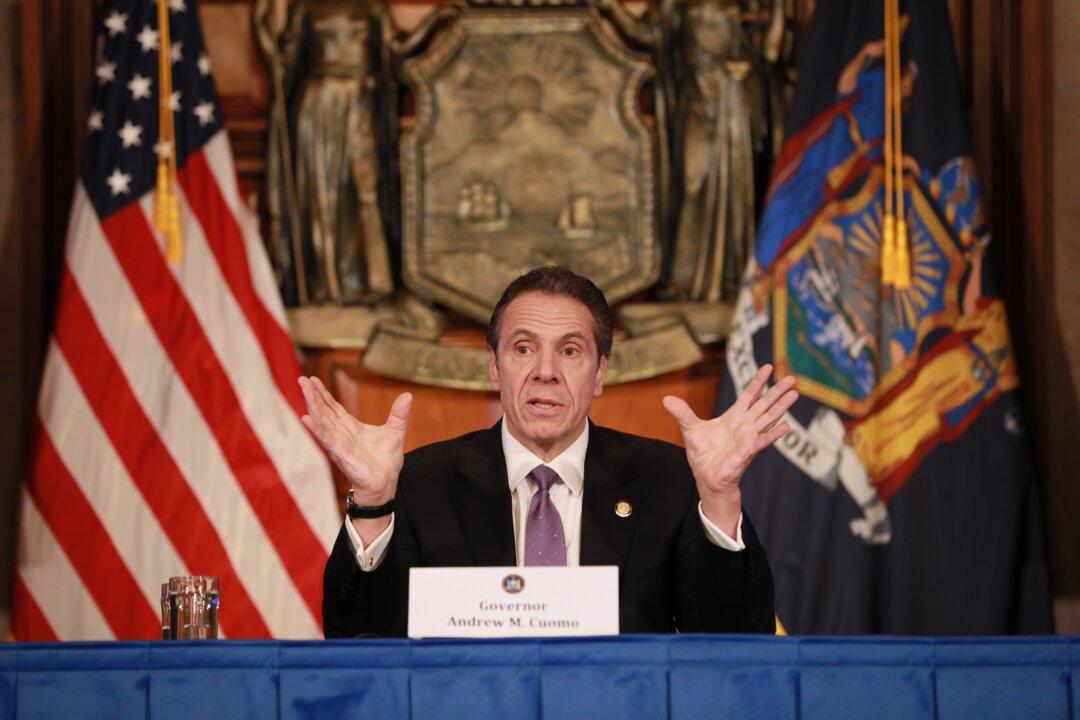New York Gov. Andrew Cuomo said that President Donald Trump is correct to question the World Health Organization (WHO) for its handling of the COVID-19 pandemic.
Speaking at his daily briefing on the CCP (Chinese Communist Party) virus, commonly known as the novel coronavirus, Cuomo said the Trump administration, which has frozen WHO funding, should get to the bottom of whether the United Nations agency in any way failed to execute its mission.





